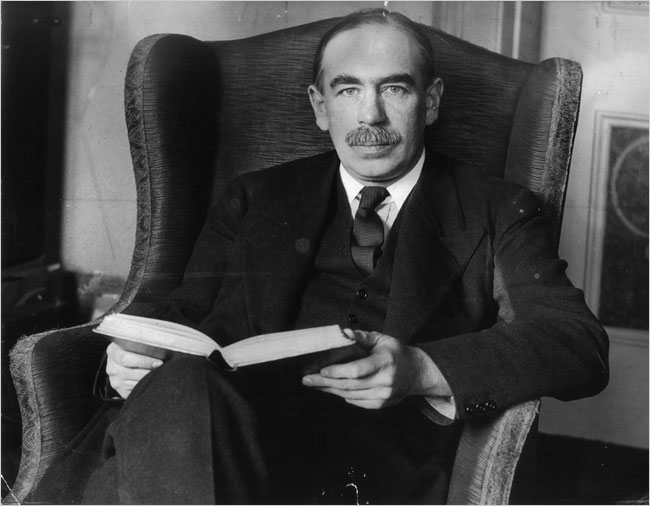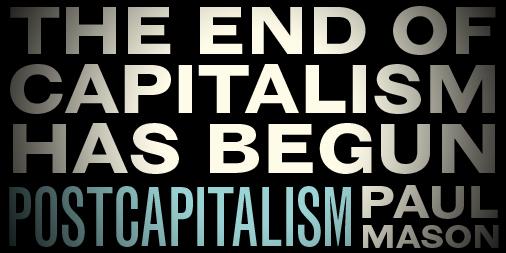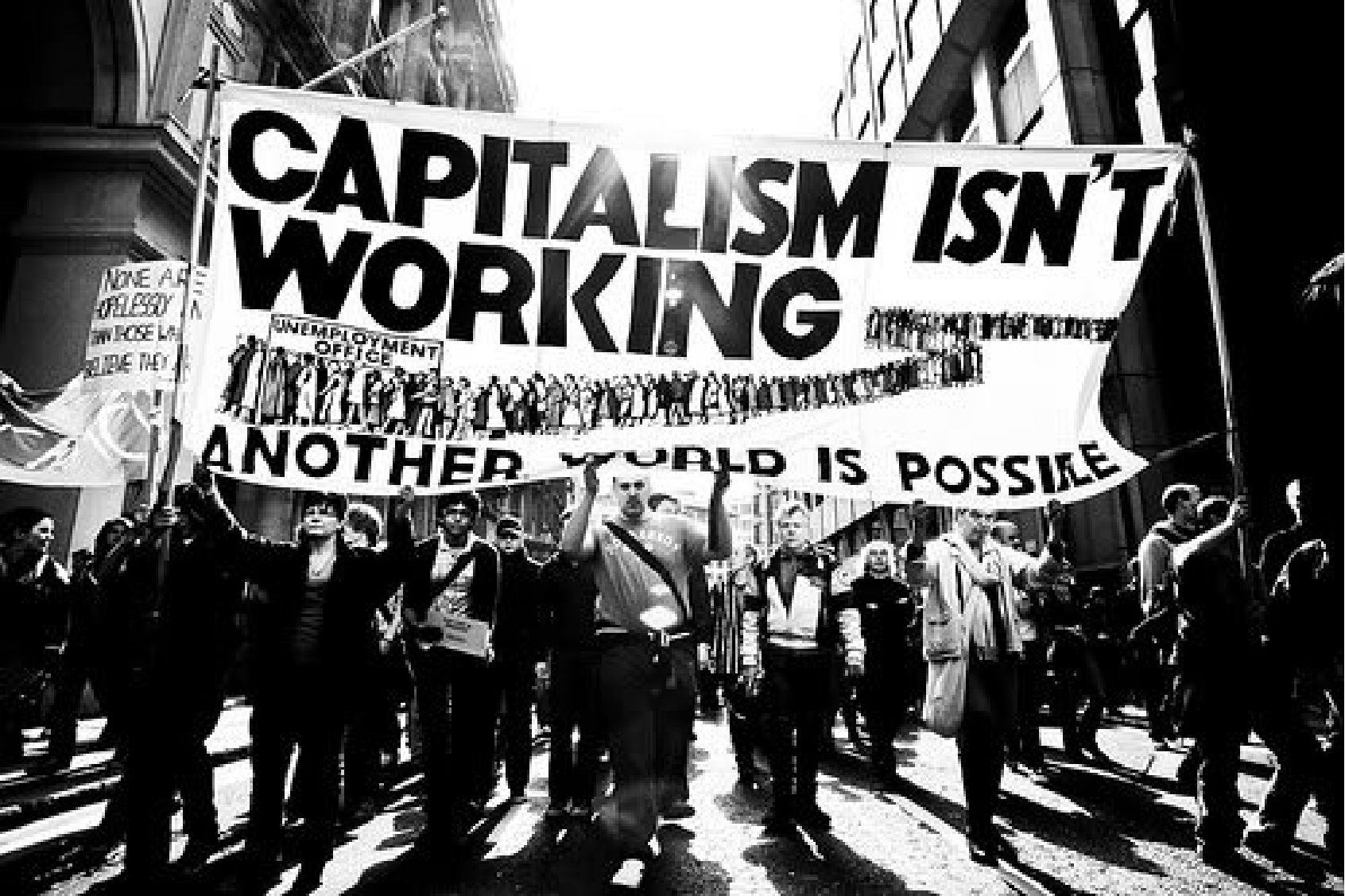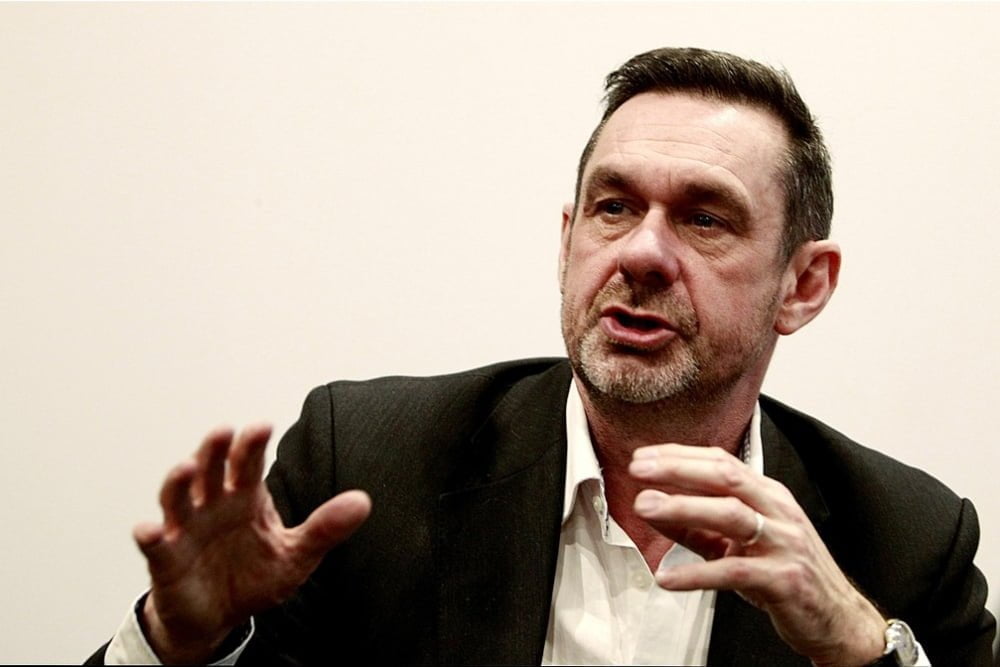A left Labour government must be prepared for power. But Paul Mason’s weak, passive, Keynesian strategy will only lead to a deeper crisis.
Left-wing journalist Paul Mason recently wrote an article for the Open Democracy website, aimed at the Corbyn movement, in which he attempts to provide a blueprint for the left to win – and secure – power.
Although Mason dresses his demands up in trendy and radical-sounding language, in reality his proposals are no different to the same old tried-and-failed reformist methods attempted by social democracies in the past.
Even from the title of Mason’s article – “What kind of capitalism is it possible for the left to build?” – we can see how the author, from the outset, has rejected any idea of genuinely radical change.
By posing the question as one of “which kind of capitalism” the left should aim for, Mason has immediately distanced himself from arguing for a socialist programme – the only way of bringing about a real and lasting transformation of society.
Like all his fellow pessimistic commentators, Mason begins by lamenting the current state of politics: notably the rise of right-wing populism and the growing distrust in multinational institutions and parliamentary democracy in general.
But Mason fails to ask: what causes these social phenomena? And what is the solution or alternative?
Keynesianism vs socialism
 What exactly is the crux of the strategy and programme that Mason proposes?
What exactly is the crux of the strategy and programme that Mason proposes?
“To win power,” the author of PostCapitalism argues, “the left must build a narrative around ending privatisation, empowering the workforce and borrowing to invest. To stay in power, left governments must transition towards an economy based on high automation, shorter working hours and free services.”
In short, the “narrative” that Mason offers, is one of Keynesian deficit-financing (“borrowing to invest”) – hardly a novel suggestion.
What Mason neglects to mention is that the demand of “borrowing to invest” in order to revive the economy would require borrowing massive sums of money – and at a time when public debt is already sky-high.
But from whom would the government be borrowing? From the very same banks and financiers that helped to bring about the financial crash of 2008. From the very same banks and financiers that were bailed out by the public purse and who now insist on austerity and cuts? From the very same banks and financiers who continue to dominate over us today, making eye-watering profits and bonuses at our expense.
Furthermore, we shouldn’t just be demanding an end to privatisation, but its reversal.
And why stop there? Why leave the parasitic banks and major monopolies in charge of the economy and our lives?
Nationalisation must be taken further than just the privatised railways and utilities. To carry out even the most basic reforms (on housing, services, and the environment, for example), a Corbyn Labour government would need to break with the anarchy of the capitalist market. Otherwise it would face economic sabotage from day-one from the bosses and bankers.
At the end of the day, you can’t plan what you don’t control. And you don’t control what you don’t own. Instead of simply reversing privatisation, therefore, we need to be arguing for a socialist Labour government that will take over the commanding heights of the economy.
Preparing for power
 Fundamentally, like all other leading figures in the labour movement today, Mason mistakes the current crisis of capitalism for one of simple political mismanagement.
Fundamentally, like all other leading figures in the labour movement today, Mason mistakes the current crisis of capitalism for one of simple political mismanagement.
The illusion Mason fosters is that austerity, wage stagnation, and the absence of any economic recovery are just the result of a political mistake or error; the result of the “nasty”, “ideologically-driven” Tories.
The conclusion alluded to by Mason is that the situation could be turned around by a left-wing government at the stroke of a pen. But the crisis facing British society is part of a deep global crisis of the capitalist system – a system which is senile and exhausted.
At best, the Keynesian policies presented by Mason might bring some very temporary relief. And even then, this would come at the expense of increasing public debts, reflating the bubble, and preparing the way for an even greater economic collapse in the future.
At worst, such a strategy would actively lead the movement up a dead end, sowing illusions precisely at a time when workers and youth need to be preparing to defend a Corbyn government against the sabotage of the capitalists.
Transition to what?
 “[The strategy of a left government] would also need to contain elements of ‘transition’,” Mason continues, “though not of the kind originated by the Communist International in the 1920s and later associated with Trotsky’s Fourth International.”
“[The strategy of a left government] would also need to contain elements of ‘transition’,” Mason continues, “though not of the kind originated by the Communist International in the 1920s and later associated with Trotsky’s Fourth International.”
“Then the aim was to introduce elements of planning and workers control into the programmes of left governments, moulded around scarcity. Today the transition path has to embrace the potential for abundance contained in information technology and, of course, to deal with climate change as an urgent issue.”
Mason makes a correct point regarding the issue of scarcity and the potential for abundance posed by modern technology. However, he ends up putting the cart before the horse.
It is precisely because of the capitalist system – of private ownership and production for profit – that the full potential of today’s technology and science cannot be realised. This is what makes socialist planning and workers’ control so necessary.
We already have the technology and technique needed to automate workplaces and vastly reduce working hours. The reason this is not done already is because it would be unprofitable for the capitalists, who implement automation in production for profits, not needs.
In capitalism’s heyday, competition and the drive for profit were a motor force of technological, industrial, and scientific developments. But now all of these forces have turned into their opposite, and have become a huge barrier on progress.
So, when Mason asserts that technology and automation will lead to capitalism withering away into a post-scarcity society, he is sorely mistaken.
What, then, does Mason mean by a ‘transition path’, if not to nationalisation and workers’ democracy? Is he calling on the capitalist state to somehow act as a neutral arbiter? Does he expect the state to act against the interests of the capitalists themselves by introducing automation, replacing workers with machines, and killing the geese that lay the golden eggs?
But countless examples from throughout history – which Mason himself will surely be aware of – show that appeals to the capitalist class to make their own system “nicer” will only lead to the confusion and destruction of any left-wing movement.
Weathering the storm
 Later, in sections entitled “Day One” and “Day 100”, Mason goes on to talk about what a left Labour government could expect upon gaining power, and how to combat the hostilities it would face.
Later, in sections entitled “Day One” and “Day 100”, Mason goes on to talk about what a left Labour government could expect upon gaining power, and how to combat the hostilities it would face.
It is in these sections that one can see clearly the naivety of Mason and his proposed ‘strategy’.
“With capital controls ruled out except in extreme circumstances,” Mason argues, “any left party contemplating power has to wargame how it might use reserves, monetary policy, fiscal expansion and currency manoeuvres to sit tight through the average three to four quarters most sudden stop episodes [flights of capital] last for.”
In short, Mason sees the only solution as being to ride a crisis out, using capitalist economic instruments as a lifeboat in the meantime.
But what Mason fails to understand – or willfully ignores – is that the storm will not simply subside over time. The flights of capital and strikes of investment that a genuinely radical government would face reflect the contradictory interests of the working class (the real wealth creators in society) and the capitalist class (whose privileges and power are based on the exploitation of the working class).
The ruling class will wage economic war for as long as it takes to break the back of a left-wing government. They will be aided in this by the billionaire media, the state apparatus, and the Blairite Fifth Column in the Labour Party. The weak, passive measures suggested by Mason will only invite further aggression and attacks from the capitalists and their representatives.
Be bold
 Any genuine change in society must come from a revolutionary movement of the working class. ‘Neoliberalism’ is just capitalism by another name. The real dichotomy is not between ‘neo-liberal capitalism’ and ‘post-scarcity capitalism’, but between capitalism and socialism.
Any genuine change in society must come from a revolutionary movement of the working class. ‘Neoliberalism’ is just capitalism by another name. The real dichotomy is not between ‘neo-liberal capitalism’ and ‘post-scarcity capitalism’, but between capitalism and socialism.
The crisis of 2008 and its political fallout has left commentators like Mason in despair. But the cause of this crisis – which continues today, a decade on – is the capitalist system.
Precisely for this reason, now is the time for bold socialist demands. Rather than tinkering with fiscal policy and reforming banking regulations, as Mason proposes, we need to demand that the leaders of the left break with capitalism and fight for revolutionary change.






